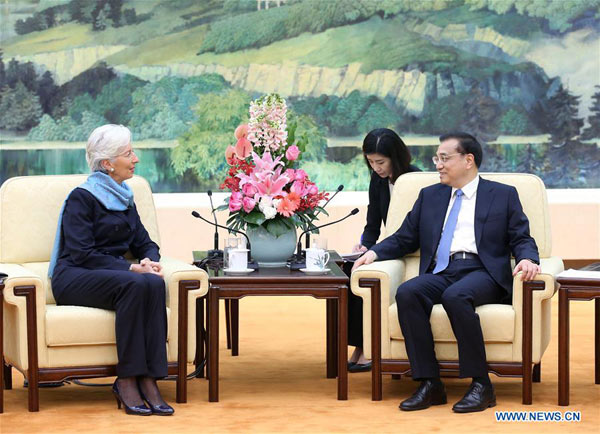 |
|
Chinese Premier Li Keqiang (R) meets with International Monetary Fund (IMF) Managing Director Christine Lagarde, who is here to attend the China Development Forum, in Beijing, capital of China, March 21, 2016. [Photo/Xinhua] |
"This transition is good for China and good for the world. As with any major transition, we should expect that it will at times be bumpy. A delicate balance needs to be struck between shifting to a relatively slower but more sustainable pace of growth, and implementing much-needed structural reforms," she said.
Lagarde said she was impressed by the Chinese government's commitment to an ambitious policy agenda, including through opening up the economy, narrowing the gap between rich and poor, and expanding innovation and entrepreneurship - three policy imperatives that she described as the "ONE principle".
"The IMF's decision to include renminbi as part of the SDR basket starting in October this year, along with the approval of the 2010 governance reforms which place China among the IMF's top three shareholders, are a testament to China's growing leadership in the global arena - a role that is set to increase even further in the future," said Lagarde, who paid a two-day visit to China where she met many senior leaders in charge of economic and financial affairs.
Analysts said the world economy has become ever more interconnected and, as a result, policy coordination among major economies has become indispensable.
Long Guoqiang, deputy director of the Development Research Center of the State Council, said, "The international community should strengthen dialogue and policy coordination to offset the negative spillover effect of policies devised by individual economies."
The United States Federal Reserve has hinted at possible interest rate increases this year, causing international capital to flow out of the emerging-market economies.
Li Xiaokun contributed to this story.
Contact the writer at [email protected]
